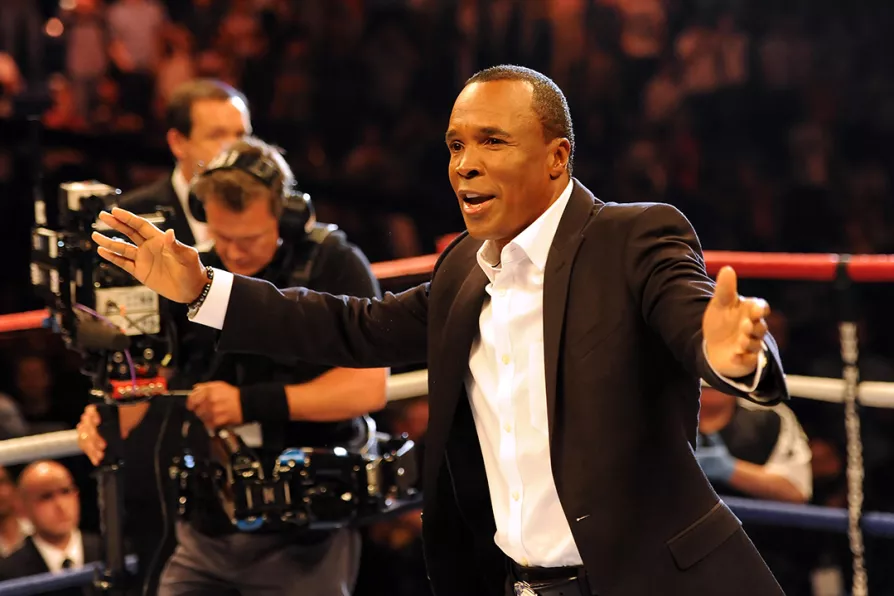
 Sugar Ray Leonard at the Nottingham Arena, May 2012
Sugar Ray Leonard at the Nottingham Arena, May 2012
WHEN it comes to the most enduring of debates over controversies that litter the history of sports, the argument over the righteous victor when Sugar Ray Leonard fought Marvellous Marvin Hagler remains up there.
The fight unfolded on April 6 1987 at the Caesar’s Palace Outdoor Arena in Las Vegas. It pitted a two-years-retired Sugar Ray against a Hagler who hadn’t tasted defeat in eleven long years. Thus the stage seemed set for Leonard’s annihilation.
But then boxing is a sport in which logic exists to be defied and in which the impossible is often rendered possible under the lights. And it was precisely this idea of the possible that occupied Leonard’s mind as he sat ringside a year prior and watched Hagler struggle against a durable but limited John “The Beast” Mugabi, before stopping him in the 11th round.

JOHN WIGHT previews the much-anticipated bout between Benn and Eubank Jnr where — unlike the fights between their fathers — spectacle has reigned over substance













